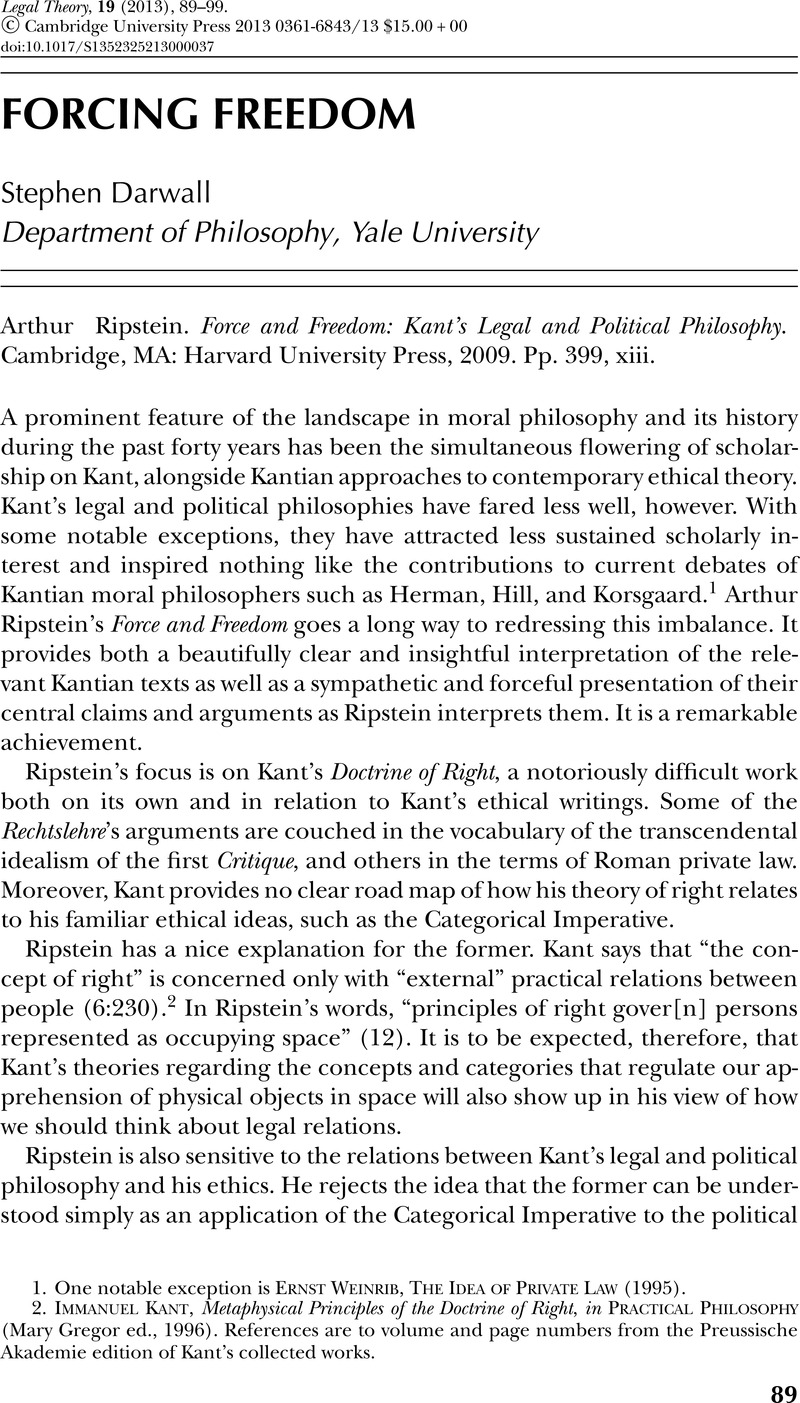Article contents
FORCING FREEDOM - Arthur Ripstein. Force and Freedom: Kant's Legal and Political Philosophy. Cambridge, MA: Harvard University Press, 2009. Pp. 399, xiii.
Published online by Cambridge University Press: 22 April 2013
Abstract

- Type
- Book Review
- Information
- Copyright
- Copyright © Cambridge University Press 2013
References
1. One notable exception is Ernst Weinrib, The Idea of Private Law (1995).
2. Kant, Immanuel, Metaphysical Principles of the Doctrine of Right, in Practical Philosophy (Gregor, Mary ed., 1996)Google Scholar. References are to volume and page numbers from the Preussische Akademie edition of Kant's collected works.
3. Robert Nozick, Anarchy, State, and Utopia (1974), at 148–154.
4. Compare this with the view developed in Darwall, Stephen, Bipolar Obligation, 5 Oxford Stud. Metaethics 7 (2012)Google Scholar.
5. Raz, Joseph, Voluntary Obligations and Normative Powers, II, 47 Proc. Aristotelian Soc'y 79–102 (1972); Joseph Raz, Practical Reason and Norms (2002)Google Scholar, at 98–104. See also MacCormick, Neal, “Voluntary Obligations and Normative Powers, I,” 47 Proc. Aristotelian Soc'y 59–78 (1972)CrossRefGoogle Scholar.
6. Here I draw on Darwall, Stephen, Demystifying Promises, in Promises and Agreements: Philosophical Essays (Sheinman, Hanoch ed., 2011)Google Scholar, at 255–276.
7. John Rawls, A Theory of Justice (rev. ed. 1999), at 171–176.
- 1
- Cited by


